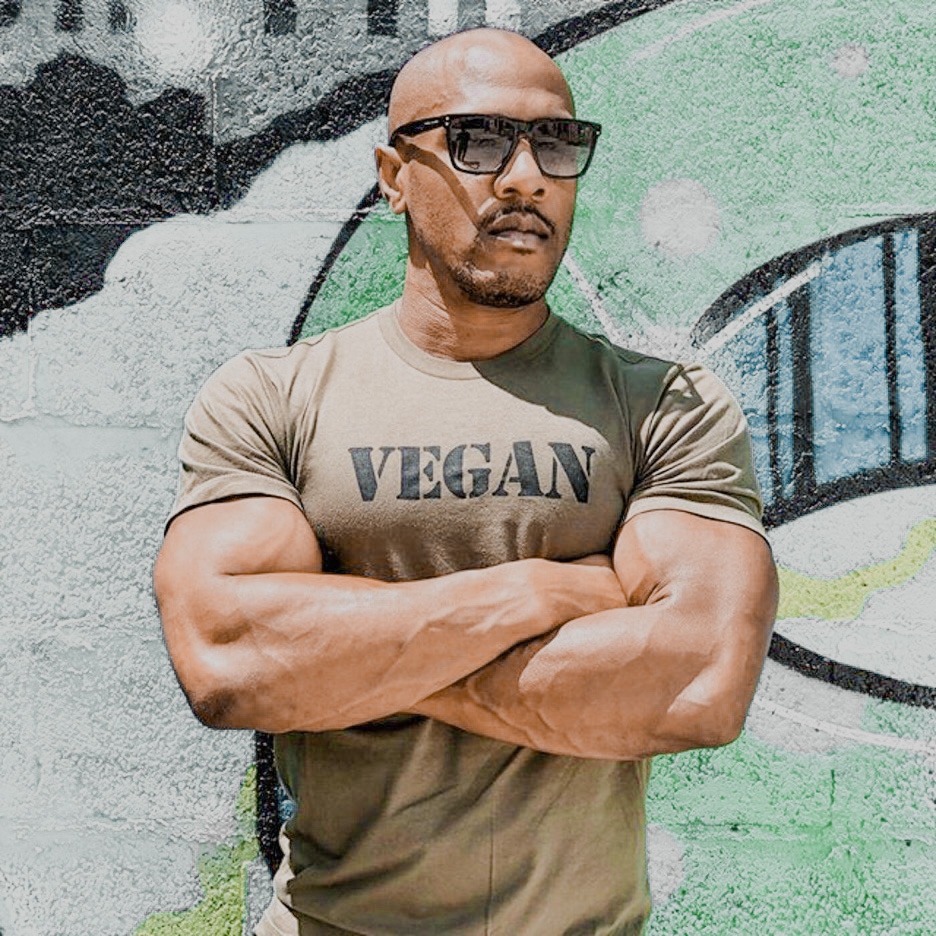This website uses cookies so that we can provide you with the best user experience possible. Cookie information is stored in your browser and performs functions such as recognising you when you return to our website and helping our team to understand which sections of the website you find most interesting and useful.
mindset
podcast
plant-based tips
meal prepping
meal planning
listen now
Plant-based inspiration and wisdom for your nutrition journey
Plant Centered &
Thriving Podcast
Tune in!
learn more
My motto? Take it step by step. Everyone’s on a different journey, and nutrition never looks exactly the same for any two people. To build sustainable, healthful eating habits, I believe in a personalised approach that gets to the root of your unique needs and goals.
Your Registered Dietitian Nutritionist & plant-based eating advocate
hey! I'm Ashley Kitchens
“Soy is just a bean.”
Soy is one of the most controversial topics in the plant-based community and one I get questions about on a regular basis. I wanted to provide you with evidence-based information with the hopes of laying to rest any remaining concerns you may have about soy. To bring in some reinforcements, I asked Dr. Matthew Nagra to weigh in.

Dr. Nagra is a Naturopathic Doctor, devoted to sharing the most up-to-date evidence-based nutrition information. He’s certified in plant-based nutrition through eCornell and the T. Colin Campbell’s Center for Nutrition Studies. He often tackles misinformation about diet and nutrition and dives deep into the latest nutrition research. Together, we tackle the following myths about soy:
- Soy causes breast cancer
- Soy causes breast growth in men
- Soy affects our hormone levels
- Soy should be consumed in limited quantities
From low-energy to plant-fueled
But how did Dr. Nagra get into health, plant-based eating, and tackling misinformation in the first place? Was he always this interested in the topic? Quite the opposite, actually. When he was younger, he had a few health issues and struggled with weight management. But then he started working with a personal trainer in his early teens and that trainer encouraged a plant-based approach.
Dr. Nagra’s trainer asked him to write down what he ate every day for a few weeks. Because Dr. Nagra didn’t want his trainer to see his current diet, which contained a lot of sugary cereal and McDonald’s, he was inspired to change it. So, he cut out dairy, heavily processed foods, and sweetened beverages. He swapped all of that for more plants while cutting down his meat consumption.
During this two-week period was when he also started feeling better. His energy was increasing, and his skin was clearing up. He felt inspired. Even though over the years his diet did fluctuate, during med school, he decided to go 100% plant-based. And he hasn’t looked back since.
In his daily life, Dr. Nagra makes sure to deliver the most up-to-date, evidence-based research. He also gets asked about soy a lot by his patients because there is a lot of concern and misinformation about this little legume. So, let’s dive into those.
Why is soy so controversial?
Soy is literally just a bean. It’s been consumed in Asian cultures for thousands of years at this point and it’s used in a whole host of ways. There is soy sauce, tofu, tempeh, edamame, soy milk, soy curls, and textured vegetable protein or soy chunks. And then there is also soybean oil that tends to be used a lot in more processed foods. There are a lot of different uses for it.
Depending on how you consume it, like in the form of ultra-processed foods or as a whole bean, the effect on your health is going to be different. But now we want to look more towards eating tofu, edamame or soy milk. Soy is a more whole food form – a.k.a. in all its glory.
Soy might also get a bad rep because of soy oil, which is in a lot of processed foods. But soy oil is not really the problem here, is it? It’s like saying water, the main component in Coca-Cola, is responsible for coke being unhealthy. And then there is the concern around GMOs, which many people link to soy. But soy that is meant for human consumption typically isn’t genetically modified anyway. That’s mostly what is being fed to animals – which then goes back to human consumption.
There is also a certain interest from the animal and meat industry to promote the “risks” of soy. In this instance, they are holding onto anything they can find. And we know in the nutrition space, there is often one study that “validates” the one thing you’re trying to prove. But that doesn’t necessarily make it accurate. You’ve got to look at the bigger picture, which is that soy has been consumed for centuries and can actually have some great health benefits.
The problem with “phytoestrogens”
Even though soy is just a bean, it actually does have some unique properties. And one of those properties is the concentration of what are called phytoestrogens (“Phyto” meaning plant). You can call them isoflavones or break them down into individual types of isoflavones which are just flavonoids. Phytoestrogens are compounds that are in a lot of other foods, too.
The fear around phytoestrogens is that because they have a similar structure to human estrogen it’s going to cause an estrogenic response in our body, too. And even though they do actually bind to some of the same receptors in our body, they don’t act the same way. Phytoestrogens actually bind much weaker and have much less of an effect on them compared to our own estrogen that our bodies produce. So, strength-wise, you’re looking at about 1/100th to 1/1000th in strength. They’re very weak in that sense.
Because phytoestrogens prefer to bind to certain receptors, specifically estrogen receptor beta, typically called a beta receptor, those receptors can actually have anti-estrogenic effects in breast tissue, which is a good thing. Too much estrogen in breast tissue can promote breast cancer. So, having an anti-estrogenic effect can actually reduce the risk of breast cancer. But then having, say, a pro-estrogenic response in bone tissue where you want estrogen, actually helps maintain bone marrow density, which is really important, especially for women as they age.
So, plant estrogen and human estrogen don’t act the same way. And a lot of the concerns come from that name, phytoestrogen. And other concerns stem from studies on rodents where they were fed absurd amounts of these isolated phytoestrogens, which may have negative effects. There are a couple of case studies of men who consumed around 12 to 20 servings of soy a day and potentially ran into issues with that. As you can imagine, if you’re eating 20 servings of anything daily, you’re going to run into some issues.
But now there are multiple meta-analyses looking at either men or women consuming varying amounts of soy. These are randomized trials of people who are fed either soy products or something else for comparison. And you actually don’t see a significant impact on testosterone or estrogen levels in either men or women. So, according to Dr. Nagra, we have solid research suggesting that soy doesn’t have any impact on our sex hormone levels. A lot of other concerns that arise are often coming from very low-quality research.

Soy can even have great physical benefits. Women in menopause, for example, often go on estrogen therapy. There’s some research on those actually being supplemented from plants and improving certain menopausal symptoms as well. So, with all that in mind, let’s bust those four common myths and spread the word about the power of soy.
Four Myths About Soy
1. Soy causes breast cancer
Soy can have anti-estrogenic effects on breast tissue. When looking at the research, especially in Asian populations where soy is a staple food, higher soy consumption is associated with a lower risk of developing breast cancer. When comparing high versus low consumption in Asian populations, you’re typically looking at daily versus weekly consumption.
In western populations, however, consumption is once a week versus once a month. And having soy once a week isn’t going to do much for your breast cancer risk. And then when you look at people who do develop breast cancer, you actually see higher survival rates in the people who are consuming more soy. So even among people with breast cancer, with the limited research to date, the research suggests that it’s actually beneficial for them to be eating more soy as well.
2. Soy causes breast growth in men
That idea typically comes from one case study on a man who was consuming an enormous amount of soy and was then developing some breast tissue. Once he got rid of the soy, it decreased again. But research on randomized controlled trials, a total of over 40 randomized trials, where none show a significant impact on testosterone or estrogen levels, contradict that one study. In Dr. Nagra’s opinion, no good data suggests that growing breasts in men is something that would occur.
And if soy really did cause breast enlargement, it would be the number-one-selling supplement on the market. Unfortunately, many people get their information and data from social media. So, when you have one situation or story blow up, it often creates a lot of fear and concern that maybe it could happen to me. Luckily, now you know that this isn’t a real concern.
3. Soy affects our hormone levels
With most testosterone and estrogen levels, whether men or women, there’s not a clinically relevant effect from soy from any higher quality research. But there is some research on thyroid function.
Soy is one of the foods, and there is a variety of them, like broccoli, that can interfere with iodine uptake in the thyroid, and they can actually cause goiter, hypothyroidism, and growth of lungs in the throat. Back in the day, there were a lot of soy-based formulas for infants who couldn’t have cow’s milk formula and they were developing goiters. The issue was that they weren’t getting any iodine because there wasn’t iodine in the soy formula at the time. Now iodine is found in dairy products, but what most people don’t actually know is it’s not inherent to dairy products. It’s actually because the gutters are being cleaned with iodine. Now soy milk or soy formulas are being fortified with iodine, too, but most plant milk actually isn’t.
In Dr. Nagra’s opinion, if your iodine intake is very low, you could run into issues, but just make sure your iodine intake is adequate. The main source of iodine is going to be iodized salt. And actually, for people with hypothyroidism who might be taking medications for it, it’s important to separate the medication from when you’re consuming soy or really a lot of other foods, too. So, maybe have your morning coffee with oat milk instead of soy after your medication.
As always, talk with your doctor or dietitian about your medications and potential interferences. To sum up, while this myth is partially true, there is an easy way to get around it.
4. Soy should be consumed in limited quantities
According to Dr. Nagra, there just isn’t a good reason to be concerned about soy intake up to any reasonable amount of five servings a day. The only concern with too much soy is that it would be crowding out other things. But that’s a concern with all foods. If you’re eating too much of one food, you’re not getting much of other things.
When it comes to protein, soy is actually a very high-quality protein source. It can compete directly against whey protein, which is considered the highest quality, and you have similar outcomes for muscle and strength gains as far as nutritional value. It’s a powerhouse food and it’s not something to really shy away from unless you have an allergy.
Listen to the podcast episode
IF YOU LOVE US, TELL US
If you enjoyed this episode, go ahead and hit SUBSCRIBE. There is a new episode every Monday. Click here to subscribe on iTunes.And if you’re feeling generous, take a few seconds to leave The Plant Centered and Thriving Podcast a review on Apple Podcasts. Hearing what you think helps me to curate the best content possible that will benefit YOU. So all you do is click here to review, click “Ratings and Reviews” and “Write a Review.”
Relevant Links
- Zhang FF, Haslam DE, Terry MB, et al. Dietary isoflavone intake and all-cause mortality in breast cancer survivors: the Breast Cancer Family Registry. Cancer. Published online March 6, 2017.
- Cancer Epidemiol Biomarkers Prev 2011 Sep;20(9):1815-21. doi: 10.1158/1055-9965.EPI-11-0363. Epub 2011 Jul 8.
- https://nutritionfacts.org/2011/08/29/soy-and-breast-cancer-an-update/
- https://nutritionfacts.org/video/is-soy-healthy-for-breast-cancer-survivors/
- https://nutritionfacts.org/video/who-shouldnt-eat-soy/
Connect with Dr. Nagra
- Instagram: @dr.matthewnagra
- Website: https://drmatthewnagra.com/
- Facebook Group: Dr. Matthew Nagra
Leave a Reply Cancel reply
more to explore
more to explore
Get weekly guidance to support your plant-based journey while strengthening your relationship with food, including weekly plant-based recipe ideas, tips, encouragement and so much more.
Join our newsletter
want blog updates?
explore
Founded by registered dietitian Ashley Kitchens, Plant Centered Nutrition shares approachable, evidence-based insights to inspire a balanced, plant-forward lifestyle. Ashley partners with brands, podcasts, and publications to show that healthy eating doesn’t have to be complicated—it just has to feel good and fit your life.
making plant-based eating easy, joyful, and realistic.

























share
click to LEAVE A COMMENT